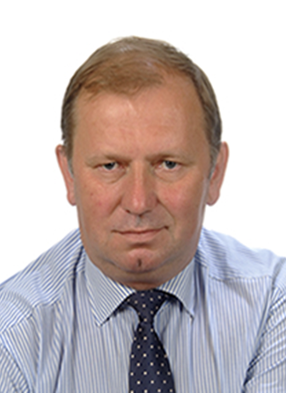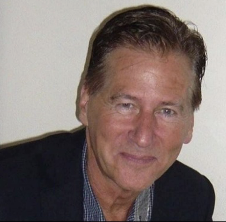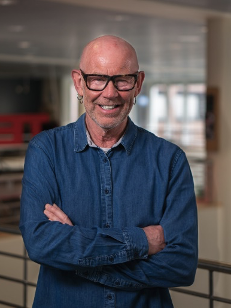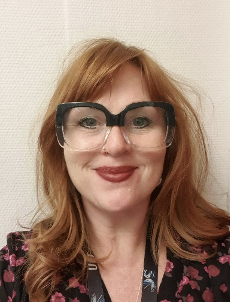The Department of Child Welfare and Social Work, UiT Norway's Arctic University is organizing a conference in Tromsø on 24 and 25 August 2023.
August 24th, 2023: TEO-H1 Auditorium 2 (1.836)
0915–0930: Welcome to the conference
0930–1030: Professor Dainius Pūras, Vilnius University, Lithuania
1030–1045: Brake
1045–1145: Ass. Professor Tracie Rogers, University of West Indies, Jamaica
1145–1230: Lunch
1230–1315: Professor Tony Ghaye, Loubourough University, Professor II UiT the Arctic University of Norway, Department of Child Welfare and Social Work
1315–1400: Professor Bengt Karlsson, University of South-Eastern Norway, Professor II UiT the Arctic University of Norway, Department of Child Welfare and Social Work
1400–1415: Brake
1415–1500: Professor Rita Sørly, UiT the Arctic University of Norway, Department of Child Welfare and Social Work
1500–1505: Thank you for today, with IBS
These are the key notes August 24th, 2023:
0915–14.00: Work shops:
The second day of the conference is open to all who has an accepted abstract. The participants will be divided into 5 groups. The groups will be presented on the first day of the conference. We will be organizing writing workshops in each group, led by the keynotes from Thursday.
TEO-H1 Rom 1.258, undervisning: Group 1, led by Prof. Puras
TEO-H1 Rom 1.307, undervisning: Group 2,led by Ass.prof. Rogers
TEO-H4 Rom 4.254, Kollokvie : Group 3, led by Prof Ghaye
TEO-H4 Rom 4.258, Kollokvie : Group 4, led by Prof. Karlsson
TEO-H4 Rom 4.404, Kollokvie: Group 5, led by Prof Sørly
1100–1145: Lunch
1400–1500: Summarizing the conference: We summarize the conference and make plans ahead for the upcoming book project.
UB Rom 244, Undervisningsrom UB:
1500–1505: Thank you for today, with IBS
(There might be minor changes in the program)
Deadline for registration: August 18th 2023
These are the key notes August 24th 2023:
Addressing status quo based on discrimination and coercion in global mental health: obstacles and opportunities for the change (professor Dainius Pūras, Vilnius University, Lithuania):

There is an emerging consensus globally about the importance of mental health and the need to invest more in mental health services. However, there remain serious disagreements among stakeholders and experts about how to invest and how not to invest.
Overuse of biomedical model, power imbalances and biased use of knowledge are among main obstacles that hinder mainstreaming of human rights-based innovations in mental health policies and services.
Opportunities on global, regional and national levels will be discussed, with regard to strengthening concerted efforts of stakeholders that support the need for change. Human rights based approach should prevail and fully embrace mental health policies and services.
Dainius Pūras is professor of child psychiatry and public mental health at Vilnius University, Lithuania. Since 2018 he is director of the Human rights monitoring institute – NGO based in Lithuania. Among positions he was holding, he was President of Lithuanian Psychiatric Association, Dean of Medical Faculty of Vilnius University, President of Baltic Association for Rehabilitation. During the years 2007-2011 Dainius Pūras was a member of the UN Committee on the rights of the child. During the years 2014 – 2020 he was serving as a UN Special Rapporteur on the right to physical and mental health.
Prof. Pūras has been actively involved in national and international activities in the field of developing and implementing evidence-based and human rights-based health-related policies and services, with special focus on children, persons with mental health conditions and other groups in vulnerable situations and issues related to promotion of mental health and prevention of all forms of violence. His main interest is management of change in the field of health-related services regionally and globally, with main focus on operationalization of human rights-based approach through effective policies and services.
Trauma-informed Social Work Research as a Social Justice Mandate: Beyond Institutional Review Boards and Selective Protections (Ass. Professor Tracie Rogers, University of West Indies, Jamaica):

Social work research tend to focus on the experience of marginalised populations, with an emphasis on making evident the larger sociocultural and structural arrangements that exacerbate their vulnerabilities. These arrangements include capitalism, gender inequalities, heterosexism, ageism and ableism to name a few. Our research is critical to designing innovative interventions across domains of practice – from individual casework to community work, and advocacy to social policy practice. Social work research, therefore, has a symbiotic relationship with social work practice. It is inextricably tied to social change and social justice. Social work must remain committed to creating the restorative conditions for and with populations who are already functioning on the margins of societies. Societal structures have generally persisted in treating marginalised people in profoundly unjust ways. It is imperative that social work research is foremost, a trauma-informed practice.
Research Review Boards are institutionally tasked to ensure that human subjects are protected from different forms of harm. Although rarely articulated as such, Institutional Review Boards (IRBs) are in essence designated with the responsibility of ensuring that research is designed in a trauma-informed manner. With that said, I ask the question: Are IRBs focussed on protecting participants or protecting institutions? A trauma-informed research agenda should include practices that not only safeguard participants from being harmed because of their participation in research; but also speak to how we engage with participants who live in chronic and acute trauma states. Social work research often engages with people with complex trauma histories and severe adverse childhood experiences. Our research participants have already been harmed as a function of structural vulnerabilities. This keynote aspires to recommend ways in which social work research should endeavour to be trauma informed, including but not limited to the use of emancipatory, decolonial and collaborative research methodologies. A trauma-informed research agenda should also include strategies to support researchers exposed to traumatic material. Trauma-informed social work research as a social justice mandate requires action beyond IRBs and selective protections. The audience is invited to imagine the contours of a trauma-informed social justice research lens, with built-in protections for all people involved in social work research.
Dr. Tracie Rogers is Associate Professor and Social Work Post-Graduate Coordinator in the Department of Sociology, Psychology and Social Work, Faculty of Social Sciences, University of the West Indies, Mona Campus, Jamaica. She teaches in the Direct Practice specialisation of the Masters of Social Work programme and coordinates graduate social work research. Her research areas include gendered dimensions of psychosocial experience of women and girls with marginalized identities, stigma and discrimination faced by people living with mental illness and HIV, trauma-informed practices and epistemic violence in research. She works primarily with participatory action research and arts-based research methodologies with a focus on social justice and activism. Dr. Rogers integrates artmaking, in the form of painting, fotografi and poetry, in data collection, analysis and research dissemination. She is also the Joint-Editor of the Caribbean Journal for Social Work.
What does it mean to feel you matter? (Professor Tony Ghaye, Loubourough University, Professor II UiT The Arctic University of Norway, Department of Child Welfare and Social Work):

Mattering is a basic human need and right. It is often experienced as feeling valued and adding value. Arguably it's an individual's feeling that they count, are significant in some way and can make a difference to the lives of others. Of course not everyone feels they matter and the physical and psycho-social consequences of this can be serious. Feeling valued refers to experiences such as recognition, respect, inclusion and affirmation; while adding value means making a contribution to other's lives, organizations and communities. Feeling valued and adding value work synergistically to help us answer the question, 'what does it mean to feel you matter? Those who feel valued, appreciated and secure are more likely to make contributions, whereas making contributions increases opportunities for feeling valued. This talk will report the results of a large global survey about mattering, how it is associated with the notion of having and being a secure-base and the crucial role kindness plays as a catalyst for feeling you matter. Implications for leadership in human service work and the need to create places and spaces where everyone feels they matter, will be suggested.
Professor (Dr.) Tony Ghaye is a community-based activist and an advocate for sustainable action for positive social change. He works inside communities and from the lived experiences of those he works with. He also has a foot in the 'university academy' which offers him a different platform from which to try to build better lives and livelihoods for the underserved, marginalized and silenced, mainly in East Africa. Ghaye is also a Professor II at UiT The Arctic University of Norway, Department of Child Welfare and Social Work He has written 16 academic books and 143 scientific papers, plus taught in some of the world's leading innovative universities, all of which reflect his twin interests of strengthening people, families and communities through (a) the new psychology of mattering (b) the research on kindness. He is a positive psychologist who focuses on what we can do to enable people to have what they want more of in their lives, rather than less of and on what people can do, rather than what they can't do!
There is a need of a revolution in the mental health field (professor Bengt Karlsson, University of South-Eastern Norway, Professor II UiT The Arctic University of Norway, Department of Child Welfare and Social Work):

The psychiatric knowledge-hegemony has for long been revealed as inappropriate with its biomedical and individualistic approaches. Over years violations of human rights, social injustice, marginalization, and stigma have been documented for citizens experiencing mental health issues. Recovery and Open Dialogue rest in human rights, dialogical, relational, collaborative and contextual practices. How can Relational Recovery (RR) offer a framework and facilitate focus on citizenship, human rights and freedom. RR was developed as a protest against individualistic and acontextual understandings of persons with lived experiences. A social network perspective, tolerance of uncertainty and dialogism in RR is described practices that may inspirer and facilitate a radical transformation of the mental health services.
Bengt Karlsson, professor in Mental health care at the University of South-Eastern Norway and a Professor II at UiT The Arctic University of Norway, Department of Child Welfare and Social Work. Karlsson is trained as psychiatric nurse and as a family therapist. He has have been working mental health in different contexts and areas of practice, research, teaching and publication. His interests are within (mental) health and poverty, social inequality, marginalizing, citizenship and human rights.
Collaborative research as democratic knowledge development (professor Rita Sørly, UiT The Arctic University of Norway, Department of Child Welfare and Social Work):

Dr Rita Sørly, Professor in Social Work, Department of Child Welfare and Social Work, UiT The Arctic university of Norway. Family and network therapist, has been working in different mental health contexts. Research interests are collaborative research in mental health and substance abuse, mental health among youth, substance abuse research, mental health care in Sapmi, user involvement, participatory action research, social work research, narrative theory, and methods. Leader of network for collaborative research in mental health and substance abuse in Northern Norway.
Ends: 25.08.23 at 16.00
Sign me up!